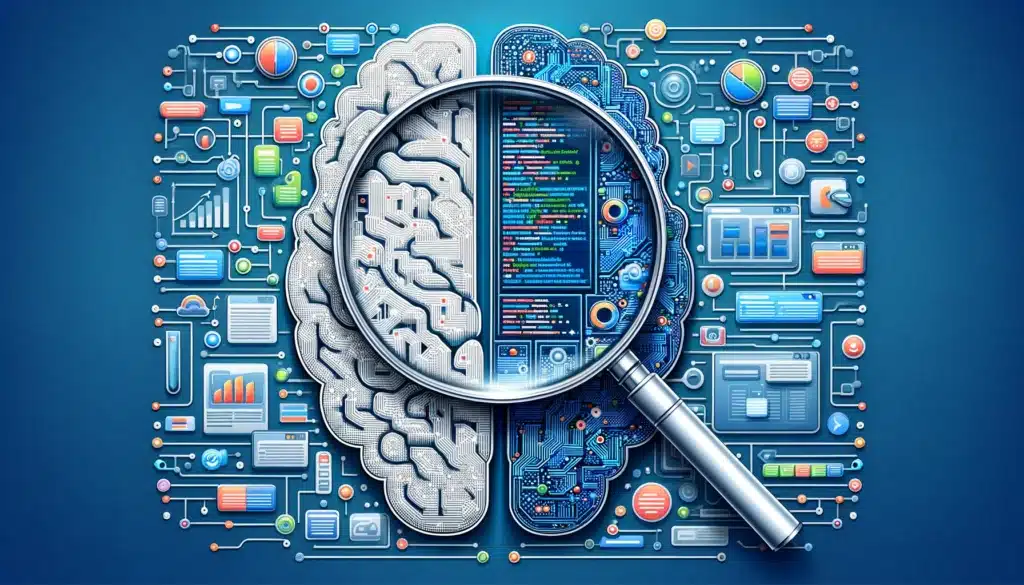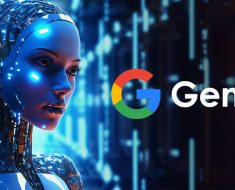The significance of Search Engine Optimization (SEO) in the digital era cannot be exaggerated. As businesses strive to improve their online visibility, the role of AI in SEO has become increasingly significant. This article investigates the convergence between AI and SEO, as well as the ways in which it can be utilized to improve the visibility of your website.
Understanding AI and SEO


Artificial Intelligence (AI) is a discipline within computer science that seeks to develop computers with the ability to carry out tasks that typically necessitate human intelligence. The tasks encompassed in this domain involve acquiring knowledge through firsthand encounters, comprehending human language, identifying recurring sequences, and formulating judgments.
Search Engine Optimization (SEO) is a set of strategies used to increase a website’s visibility on search engine results pages (SERPs). It involves optimizing a website’s design, content, and structure to make it more attractive to search engines. SEO is crucial for businesses as it helps them reach their target audience and increase their online presence.
The intersection of AI and SEO is where things get interesting. AI can be used to automate and enhance various aspects of SEO. For example, AI algorithms can analyze vast amounts of data to identify trends and patterns that can inform SEO strategies. They can also automate tasks such as keyword research, content optimization, and link building, making SEO more efficient and effective.
The Impact of AI on SEO


AI has had a profound impact on SEO. Here are six instances of how AI has changed the SEO landscape:
- Understanding User Intent: AI algorithms like Google’s RankBrain have improved search engines’ ability to understand user intent. Instead of simply matching keywords, AI can interpret the context of a search query and provide more relevant results.
- Content Optimization: AI can analyze a website’s content and suggest improvements based on SEO best practices. This includes optimizing meta tags, improving readability, and ensuring keyword density.
- Voice Search Optimization: With the rise of voice assistants like Siri and Alexa, optimizing for voice search has become crucial. AI can help businesses optimize their content for voice search by focusing on long-tail keywords and conversational language.
- Image and Video Recognition: AI has improved search engines’ ability to understand and index non-text content like images and videos. This has made it possible for businesses to optimize such content for SEO.
- Predictive Analysis: AI can analyze search trends and user behavior to predict future trends. This can help businesses stay ahead of the curve and optimize their content for topics that are likely to be popular in the future.
- Personalization: AI can help businesses deliver personalized content to their users based on their search history and online behavior. This can improve user engagement and boost SEO.
How to Use AI in SEO
Incorporating AI into your SEO strategy can seem daunting, but it doesn’t have to be. Here are some steps you can take:
- Identify Opportunities: Look for areas in your SEO strategy that could benefit from AI. This could be anything from content creation and optimization to technical SEO.
- Choose the Right Tools: There are many AI-powered SEO tools available that can help you optimize your website. These tools can provide insights into your website’s performance, identify issues that need to be fixed, and suggest improvements.
- Implement and Monitor: Once you’ve identified opportunities and chosen your tools, it’s time to implement your AI-powered SEO strategy. Remember to monitor your results and make adjustments as necessary.
Benefits of Using AI in SEO


Using AI in SEO has several benefits. Here are five key advantages and why they are positive:
- Efficiency: AI can automate repetitive tasks such as keyword research and link building, freeing up time for more strategic work. This increases efficiency and allows businesses to get more done in less time.
- Accuracy: AI algorithms can analyze large amounts of data quickly and accurately. This provides valuable insights that can inform your SEO strategy and help you make data-driven decisions.
- Competitive Edge: Businesses that leverage AI in their SEO strategies can gain a significant edge over their competitors. AI can help businesses stay ahead of SEO trends and adapt to changes in search engine algorithms.
- Improved User Experience: By delivering more relevant search results and personalized content, AI can improve the user experience. A better user experience can lead to higher engagement, improved brand loyalty, and increased conversions.
- Future-Proofing: As AI technology continues to evolve, it will play an increasingly important role in SEO. Businesses that start incorporating AI into their SEO strategies now will be better prepared for the future.
Challenges and Solutions


While AI offers many benefits, it also presents some challenges. These include the need for technical expertise to implement and manage AI-powered SEO strategies, and the risk of becoming overly reliant on AI at the expense of human judgment and creativity. However, these challenges can be overcome with the right training and a balanced approach that combines the best of AI and human expertise.
Future of AI in SEO


The future of AI in SEO is bright. As AI technology continues to advance, it will likely play an even larger role in SEO. We can expect to see more sophisticated AI algorithms that can understand and interpret web content even better than they do now. This will make SEO more complex but also more rewarding for those who can effectively leverage AI.
Conclusion
In conclusion, AI in SEO is not just a trend, but a powerful tool that can significantly improve your website’s visibility. By understanding and leveraging AI, you can stay ahead of the curve and gain a competitive edge in the digital marketplace. So why wait? Start incorporating AI into your SEO strategy today!
- Identify Opportunities: Look for areas in your SEO strategy that could benefit from AI. This could be anything from content creation and optimization to technical SEO.
- Choose the Right Tools: There are many AI-powered SEO tools available that can help you optimize your website. These tools can provide insights into your website’s performance, identify issues that need to be fixed, and suggest improvements.
- Implement and Monitor: Once you’ve identified opportunities and chosen your tools, it’s time to implement your AI-powered SEO strategy. Remember to monitor your results and make adjustments as necessary.
Benefits of Using AI in SEO
Using AI in SEO has several benefits. First, AI can analyze large amounts of data quickly and accurately, providing valuable insights that can inform your SEO strategy. Second, AI can automate repetitive tasks, freeing up your time to focus on more strategic aspects of SEO. Finally, AI can help you create better, more engaging content that resonates with your audience.
Challenges and Solutions
While AI offers many benefits, it also presents some challenges. These include the need for technical expertise to implement and manage AI-powered SEO strategies, and the risk of becoming overly reliant on AI at the expense of human judgment and creativity. However, these challenges can be overcome with the right training and a balanced approach that combines the best of AI and human expertise.
Future of AI in SEO
The future of AI in SEO is bright. As AI technology continues to advance, it will likely play an even larger role in SEO. We can expect to see more sophisticated AI algorithms that can understand and interpret web content even better than they do now. This will make SEO more complex but also more rewarding for those who can effectively leverage AI.
Conclusion
In conclusion, AI in SEO is not just a trend, but a powerful tool that can significantly improve your website’s visibility. By understanding and leveraging AI, you can stay ahead of the curve and gain a competitive edge in the digital marketplace. So why wait? Start incorporating AI into your SEO strategy today!
Disclaimer: The Author acknowledges that AI technology may have been utilized in generating the content of this site. However, the Author assumes no responsibility or liability for any errors or omissions in the content. The information provided on this site is intended to be informative and helpful, but it is provided on an “as is” basis with no guarantees of completeness, accuracy, usefulness, or timeliness. Visit our website disclaimer page as a reference.





